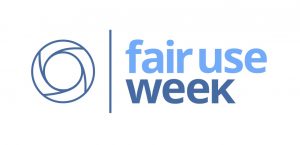 Fair Use Week 2025 takes place from February 24-28, 2025. This year, we are continuing to watch several court cases that could decide how generative artificial intelligence (AI) tools function or establish new understanding of how U.S. copyright law enables innovation and creative uses of copyrighted content through an exception known as fair use.
Fair Use Week 2025 takes place from February 24-28, 2025. This year, we are continuing to watch several court cases that could decide how generative artificial intelligence (AI) tools function or establish new understanding of how U.S. copyright law enables innovation and creative uses of copyrighted content through an exception known as fair use.
Generative AI tools have impacted many industries including academia. Generative AI offers opportunities to improve processes while also creating concerns that the full impact of their use might not be immediately obvious. Potential issues like hallucinations, unauthorized use of copyrighted content, hidden bias, and adverse environmental impact have led many institutions to create guidelines on how these tools should be used for work and research.
Generative AI tools, a subset of AI systems and programs that mimic human cognition, can create new text, images, music, and videos. The tools rely on large datasets that incorporate pre-existing works which may be protected by copyright. Fair use, an exception within U.S. Copyright Law that allows the use of copyrighted material in certain circumstances, could provide the necessary framework that allows generative AI’s use of this copyrighted material.
As generative AI tools have become more prevalent, many authors and creators have claimed potential copyright infringement. Creator complaints that their work has been used without permission include concerns that AI-generated content could dilute the value of their original works, reduce their income, and undermine their creative efforts.
Copyright scholars have pointed to case history arguing that generative AI’s use of copyrighted content will likely be found a fair use by the courts (Merkley, 2023; Sag, 2023). Many existing platforms use copyrighted content in similar ways:
- Plagiarism software needs to ingest copyrighted content in order to identify the copying of that content.
- Google Books digitization to create meta-analysis and indexing has been found to be fair use in courts.
Generative AI’s fair use argument hinges on how the tools are trained: that the dataset composed partially of copyrighted content is studied by the generative AI tool and used for learning but not copied into outputs in response to user prompts. If what generative AI does during training on copyrighted content is not found to be a fair use, the training process for these AI systems would be severely restricted, deeply impacting the potential of these technologies.
Fair use was incorporated into copyright law to provide a balance between the author’s exclusive rights over their creations and the creation of new knowledge by using previously created works in new and innovative ways. That balancing act has never been simple. The use of copyrighted content by generative AI will result in new case history that helps us understand fair use.
Learn More:
Resources
Merkley, R. (2023). On AI-Generated Works, Artists, and Intellectual Property. Lawfare February 28, 2023. https://www.lawfaremedia.org/article/ai-generated-works-artists-and-intellectual-property
Sag, Matthew, Copyright Safety for Generative AI (August 10, 2023). Forthcoming in the Houston Law Review, Houston Law Review, Vol. 61, No. 2, 2023, Available at SSRN: https://ssrn.com/abstract=4438593 or http://dx.doi.org/10.2139/ssrn.4438593